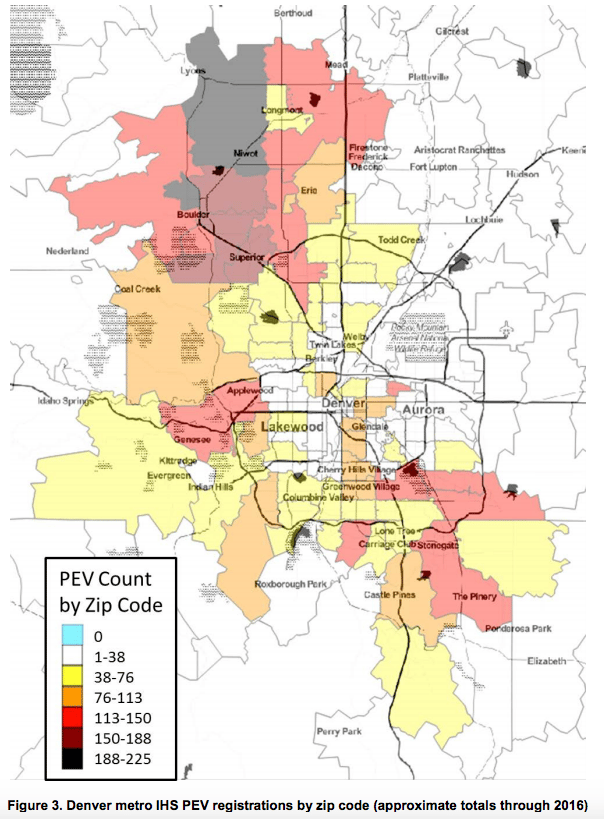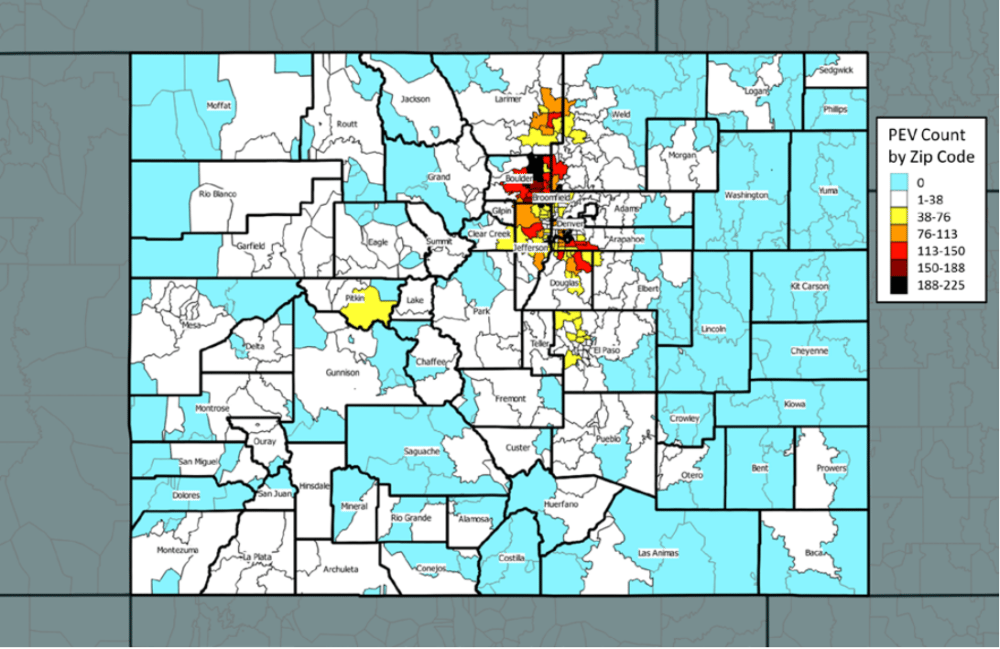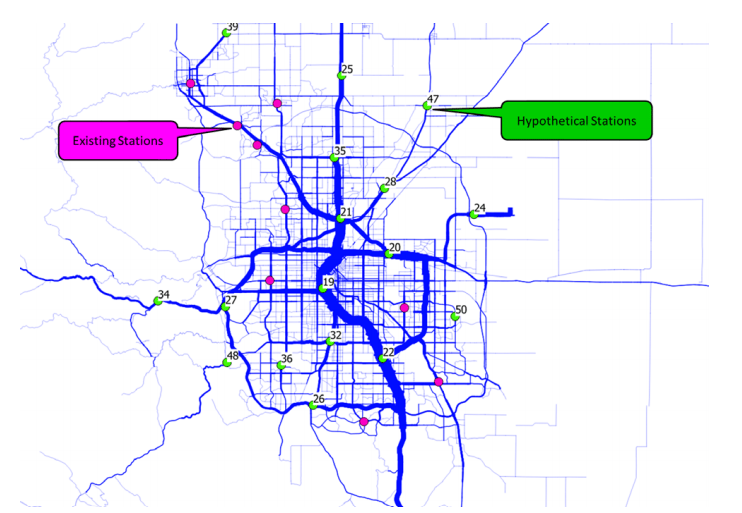Coloradans have registered about 8,600 plug-in electric vehicles, and they're more popular in central and northeastern Boulder than anywhere else in Colorado, according to a new report by the National Renewable Energy Laboratory.
The analysis shows that Boulder County had about 1,600 plug-in vehicles registered in 2016.
Denver and Jefferson Counties trailed with about 1,100 each, despite their significantly higher populations. These numbers include plug-in hybrids and full electric vehicles.
Within Boulder County, the ZIP codes corresponding to the central Boulder as well as the rural-suburban area between Niwot and Lyons scored highest for plug-in vehicle ownership.

Of course, this is not a completely fair comparison, as all of these areas have different sizes and different populations. One ZIP might have a few thousand households, while another might have more than 20,000.
However, the NREL report still illustrates the increased popularity of electrics in affluent Boulder.
Luke Walch, the owner and founder of the used-electric dealership Green Eyed Motors in Boulder, said he can hardly keep vehicles in stock.
"I bought close to 15 electric cars today for inventory," he said.
Asked about the vehicles' popularity in Boulder, he said that "a lot of it's financial" -- people who live in Boulder tend to have more money to spend on new cars -- but he also thinks it's part of the city's culture.
"A lot of it is who works here. There’s wind research, there’s NOAA. There’s people who are educated in what’s going on in the planet," he said.
(NREL itself is down the road in Golden and operates a facility for testing wind turbines just outside Boulder.)
"And," he added, "a lot of people in Boulder don’t leave Boulder very much, so the range doesn’t matter -- or they’re a two-car family. They have a Subaru Outback for going to the ski resorts and a Nissan Leaf for around town."
A lightly used Leaf sells for $9,000, Walch said. It was the most popular electric in Colorado last year, followed by the Chevrolet Volt, according to NREL.

When we zoom out, we can see that the vehicles are really concentrated in the Front Range and near Aspen.
Colorado is working to raise those numbers. Under a newly implemented law, the state offers a $5,000 tax credit for electric vehicle purchases, which can be combined with a $7,500 federal purchase, making it "arguably" the best place in the country to buy an electric, according to the Washington Post.
The Colorado Energy Office anticipates that the state might have about 300,000 plug-ins on the road by 2030 in a "medium" growth scenario, including about 163,000 full electrics, according to the NREL report.
Many analysts believe that installing more of the fastest charging stations will spur more adoption of the vehicles, as we explained earlier this week.
NREL says that Colorado currently has only 18 of the "modern" charging stations, which reportedly can add 50 miles to a car's battery in 20 minutes. That excludes proprietary chargers operated by Tesla, but it's still a far cry from the 54 stations that the Colorado Energy Office says may be necessary by 2020.
The NREL report and city of Denver staff project that these "Level 3" chargers might be best suited for popular transportation corridors around the city and rural areas, including the mountain corridors. They eventually could be powered up to add 200 miles in under an hour, according to a recent report by the city of Denver.
For more information about Denver's planning for electric vehicles and the potential environmental benefits in the city, check out our earlier coverage.











